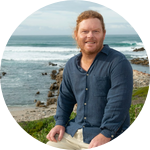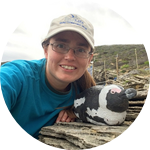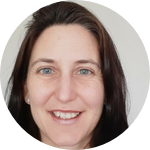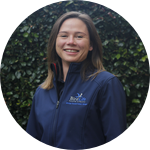About This Project
Cape Cormorants and Cape Gannets are Endangered seabirds that primarily feed on sardine and anchovy . Although their breeding movements are well known, their non-breeding movements are yet to be discovered. Knowing where they go throughout the year will identify areas of common use that need protection. Seabirds are indicators of marine ecosystem health and tracking these species will provide insights into the state of South Africa's marine ecosystem.
Ask the Scientists
Join The DiscussionWhat is the context of this research?
The population trends of three Benguela Endangered seabirds, Cape Cormorant, Cape Gannet and African Penguin, are tightly coupled to their prey abundances, which are commercially exploited forage fish. To alleviate competition for prey with fisheries, conservation strategies such has colony-centric no-take zones have been proposed. However, these strategies were based on the behavioral response of birds to variable prey abundances gathered from GPS tracks of breeding birds. We have no information on how these birds respond to varying prey supplies outside their breeding season. In addition, the wider distribution of non-breeding seabirds increases the probability of the birds interacting with potentially risky anthropogenic activities.
What is the significance of this project?
Outside of the breeding season, birds are no longer spatially constrained by the need to care for young. The movement information of non-breeding birds will enable us to assess the response of these birds' foraging behavior to natural and anthropogenic drivers of their prey supplies at a larger scale compared to breeding birds . As these birds specialize on commercially exploited prey, their movement can be used to inform an Ecosystem-based Approach to Fisheries and identify important foraging areas that currently lack conservation and management strategies to protect these species. These data are critical for the conservation of these Endangered species especially in terms of managing their common prey supplies more effectively.
What are the goals of the project?
For the first time, we aim to quantify the non-breeding distribution of Cape Cormorants and Cape Gannets. We will deploy trackers on birds nearing the end of their breeding attempt at colonies along coast of South Africa. We will present these data to the relevant governmental and managerial structures as marine Important Bird Areas as areas in need of greater protection. Links between the foraging behavior of the birds (e.g. foraging 'hotspot' and residency time and links to future breeding success) and anthropogenic and natural drivers (e.g. bycatch, climate and prey removal by fisheries) will be presented to relevant governmental structures to be incorporated in South Africa's Ecosystem-based Approach to Fisheries management practices.
Budget
The budget is for GPS-GSM tracking devices. These device cost ~$1000 so we are hoping to fund 10 loggers through Experiment. To complete our study we would need at least 40 loggers. These devices are attached to the birds and will log their movements at specified intervals and then transmit the data back via the cellular network. It is vital to have a large enough sample size of individuals to get a representative distribution of where the birds go. Expenses allocated to field work and staff time will be supported by existing funding streams that recognise the importance of the proposed project.
Endorsed by
 Project Timeline
Project Timeline
Between 2022 - 2024, the project aims to track Cape Cormorants and Cape Gannets at two sites each. Each species will be tracked from a breeding colony on the west and east coasts of South Africa. Completion of the project will be dependent on funding for GPS-GSM loggers.
Oct 20, 2021
Project Launched
Mar 31, 2022
Funding for logger acquired
Mar 31, 2022
Permits and ethics approved
Oct 01, 2022
Loggers received
Feb 28, 2023
10 loggers attached to non-breeding Cape Gannets from Bird Island, Gqeberha, Eastern Cape, South Africa
Meet the Team
Affiliates
Tegan Carpenter-Kling
At BirdLife South Africa, Tegan is responsible for the research on coastal seabirds. Using her background in spatial statistics, Tegan is collecting and using tracking data from Cape Gannets, Cape Cormorants and African Penguins during different life-history stages to fill knowledge gaps and inform conservation and management strategies. Tegan has a PhD in Zoology from Nelson Mandela University, her thesis used tracking and stable isotope data from ten seabird species and two fur seal species to investigate their foraging behaviour in relation to environmental variability.
Additional Information
Project Backers
- 30Backers
- 100%Funded
- $10,025Total Donations
- $232.87Average Donation





